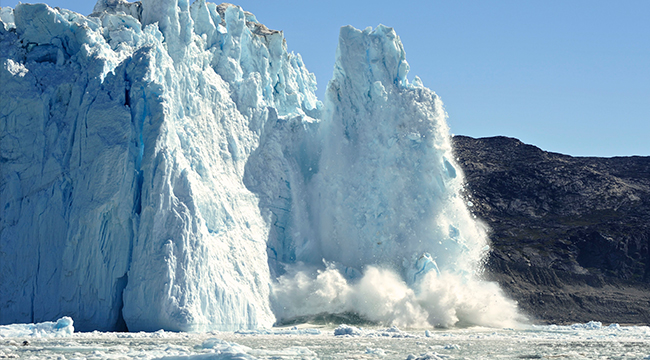
If we don’t stop it, climate change will fundamentally alter the world around us, from the beer we drink to the insurance premiums we pay out. One of the biggest problems will be a rise in sea levels. The worst-case scenario could wipe out entire cities and create a migration crisis unlike anything the world has ever known, and worryingly, a new study says the worst-case scenario is a lot more possible now.
The Washington Post reports on a new study, which combines measurements and observations from more than a dozen different scientific teams, that’s found Antarctic ice loss has tripled just in the past decade, and it appears to be rising exponentially.
Antarctica, the planet’s largest ice sheet, lost 219 billion tons of ice annually from 2012 through 2017 — approximately triple the 73 billion ton melt rate of a decade ago, the scientists concluded. From 1992 through 1997, Antarctica lost 49 billion tons of ice annually…[University of Buffalo glaciologist Beata] Csatho noted that comparing the first and last five year periods in the record reveals an even steeper acceleration. “Actually, if you compare 1997-2002 to 2012-2017, the increase is even larger, a factor of more than 5!!”
Making matters worse, this is largely thanks to two glaciers in the West Antarctic Ice Sheet, which you might remember has a melting problem that would be enough to wipe out the majority of coastal cities. Specifically, the Pine Island and Thwaites glaciers are the ones we need to worry about, the latter especially. If Thwaites goes, it’ll not only drive up sea level by several feet, it’ll also set up the rest of the West Antarctic to melt.
On its own, it’s bad news, but what’s worse is that this reduces the window of time that people and governments have to act. To some degree, all we can do is slow the loss to the point where we can keep this manageable until there’s a long-term solution. But in a “high emissions” scenario, namely what we’re doing now, this speeds up and cities begin to flood. Even the “best case” scenario isn’t good: Higher seas mean, among other things, deadlier hurricanes.
There is good news. Between 2000 and 2014, 33 states cut the link between carbon and economic growth, meaning there’s not really a fiscal sacrifice in play. And renewable energy is growing at speed. And even if some refuse to lead, the states and cities most at risk are stepping up to fight climate change. Still, there is more, much more, that needs to be done, and this study just adds to that urgency.






